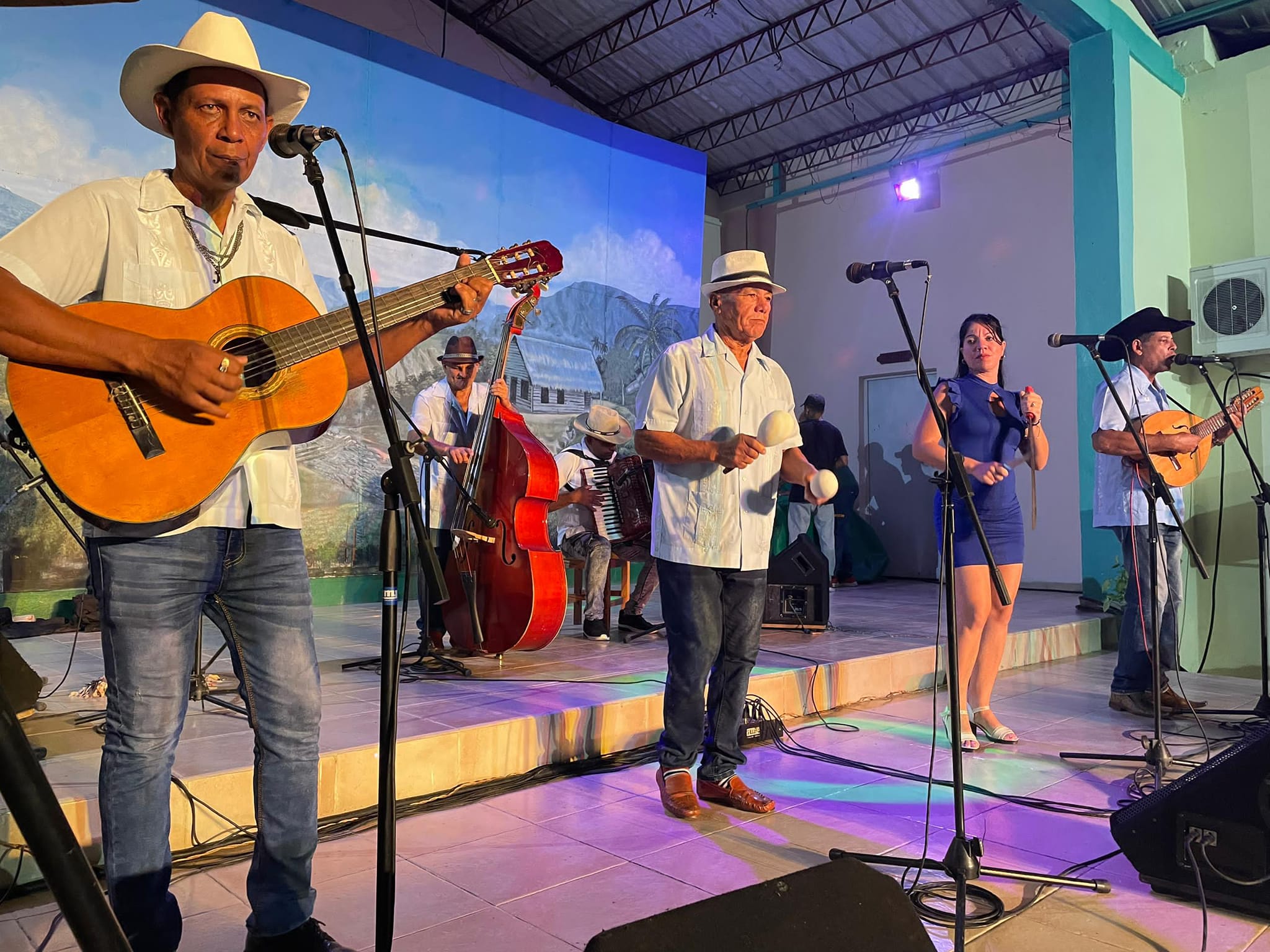 Guantanamo.- After four days of concerts, spaces for theoretical exchanges, community presentation, competitions, workshops to learn how to dance and play this native genre and the traditional changüinazo, the 11th edition of the National Changüí Festival Elio Revé Matos, concluded in the Guantánamo Province.
Guantanamo.- After four days of concerts, spaces for theoretical exchanges, community presentation, competitions, workshops to learn how to dance and play this native genre and the traditional changüinazo, the 11th edition of the National Changüí Festival Elio Revé Matos, concluded in the Guantánamo Province.
From June 27 to 30, the Guantanamo City was the site of musical convergences for groups that performe this authentic sound, such as the emblematic Changüí Guantánamo, Robertico y su Sincopa Uno, Estrellas Campesinas, Las Flores del Changüí, Celso el Guajiro de Yateras, as well as groups that arrived from other parts of the world: Changüí Jíbaro, from Puerto Rico, and Kayambe and his Yumberos, from the United States.
Likewise, the renowned treseros Yarima Blanco, Maikel Elizalde, Juan de la Cruz Antomarchí, popularly known as Cotó, and Oderquis Revé, the lutenist Jesús Fernández and the Quinteto La Luz, Manolito Simonet y su Trabuco, Elito Revé, – honorary president of the event -, accompanied by his Charangón, and the group Mongo Rives and his Septeto Pinero with their traditional sucu suco from the Isle of Youth, honored the event with their performance and talent.
The usual pilgrimage to the Guantanamo cemetery to pay tribute to iconic exponents of the genre who left their mark on the Cuban music scene, concerts in the municipalities El Salvador, Yateras and Caimanera, the Pedro Speck Changüi Creation Contest and the Competition of marimbula, tres, bongo players and dancers of the genre also constituted significant proposals of the event.
Also a special moment was the presentation of the first album, entitled “A Puro Sabor,” of the group Los Morenos del Changüí, with the musical production of maestro Conrado Monier and recorded at the Siboney Studios, of the EGREM, in Santiago de Cuba.
The participation of the music-dance group Nengón Imías also distinguished the days of the Festival, which had among its main locations the Area of Traditions, in the popular neighborhood of Loma del Chivo, the Casa del Changüí Chito Latamblé Veranes and the Elio Revé Matos Park where the Guantanamo people said goodbye to this edition to the rhythm of their native rhythm.
Translated by Liubis Balart